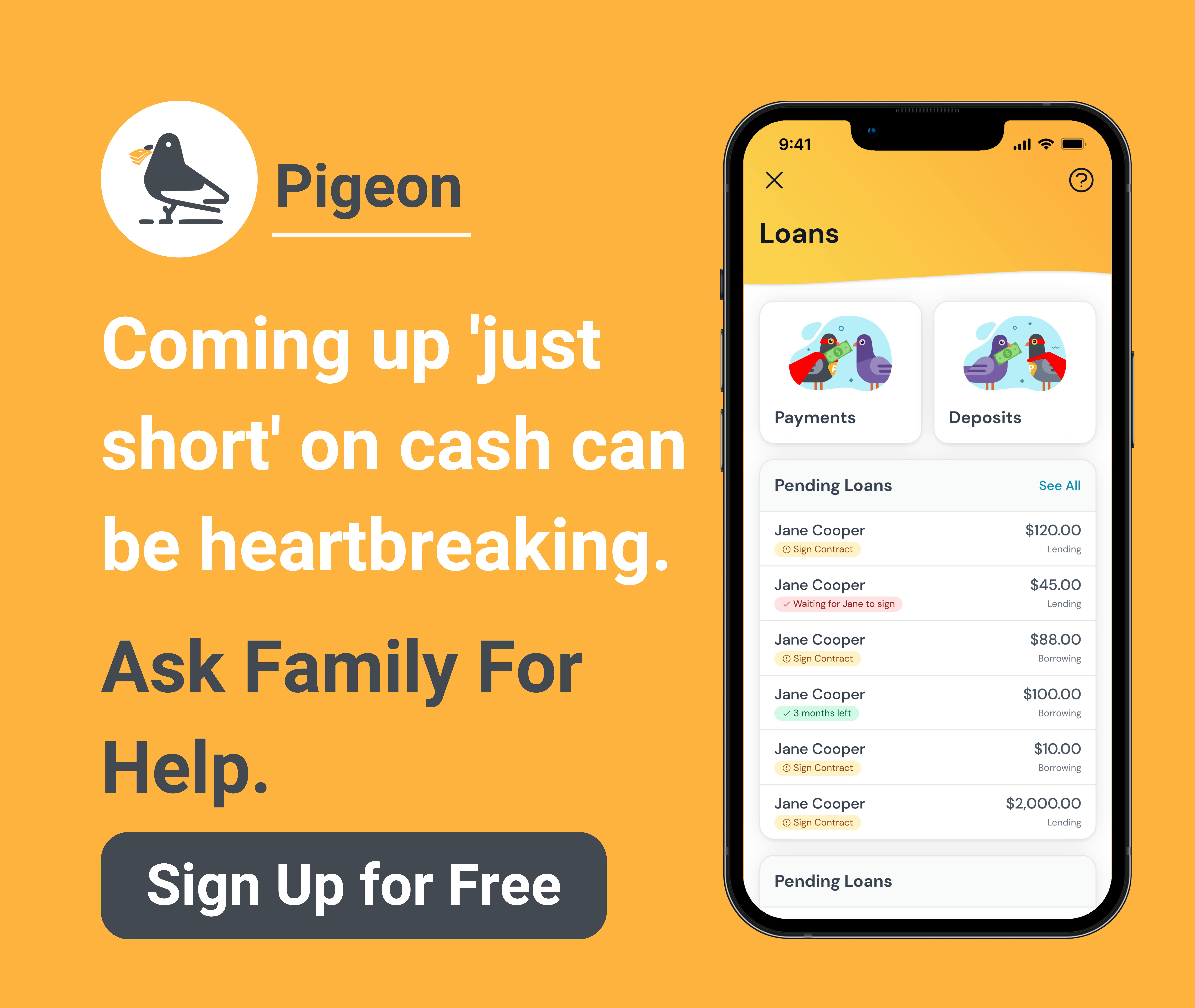With home prices on the rise, mortgage closing costs are going up fast as well. In 2021, the average closing cost for a single-family property in the US was $6,905, up 13.4% from the year before 📈.
What do these average closing costs include? Depending on where you live, individuals buying a home are usually responsible for covering things such as:
- Property taxes and prepaid interest
- Homeowners insurance & title insurance
- Mortgage application fees & origination fees
- Home inspection & appraisal fees
- Credit check fees & notary fees
- Homeowners Association (HOA) and condominium association fees
To complicate matters further, a December 2021 report from federal mortgage backer Fannie Mae found that low-income first-time homebuyers tend to pay closing costs 13% higher than the average buyer when adjusted for home value 🧐.
With the cost of living rising at its fastest rate since 1981, what options are available for homebuyers to overcome this last hurdle on the path to homeownership?

Alternative ways to pay closing costs
If you’re like most buyers, you’ve probably committed as much of your savings as possible towards your down payment on your home to get a more favorable interest rate. To seal the deal on financing your dream home, you have a few alternatives to consider:
- Add or “Roll Over” Closing Costs into Your Mortgage
- Obtain a Personal Loan
- Use Credit Cards
- Apply for Homeownership Assistance Programs
Each one of these options can impact your mortgage application and your eventual home purchase in different ways, so it’s wise to do your research early on to figure out which works best for you 👇
Add or “Roll Over” Closing Costs into Your Mortgage
In most cases, this option is only available to you if you're refinancing a home you already bought. However, there are still two ways you can achieve this as a first-time homebuyer.
Ask your mortgage lender
Depending on the type of loan, your mortgage lender may be able to help you cover the closing costs in exchange for paying a higher interest rate. This method is also referred to as a “zero-closing-cost mortgage” or a mortgage with “lender credits.”
When you choose this type of mortgage, you’ll end up paying less money upfront at the time of closing – but you’ll ultimately end up paying more money over the course of your mortgage due to the higher interest 💰.
Ask the seller
Though uncommon during a “Seller’s market,” a motivated seller may be willing to cover your closing costs for you to speed up the deal. If your home appraisal value comes back higher than your purchase offer amount, you may even be able to add on your projected closing costs and make a revised offer. Here’s how this works:
Example Scenario:
You put in a $200,000 offer on a home, and the Seller accepts. The home appraisal results come back and value the home at $220,000. You meet with your mortgage lender and they tell you to expect closing costs of $5,000 if approved.
After speaking with the Seller, you and your broker make a new offer on the home for a purchase price of $205,000 in exchange for the Seller agreeing to cover your closing costs. Since your home appraisal value is still $15,000 higher than your offer price, your mortgage lender approves your loan to buy the home ✅.
This way, you can avoid paying any closing costs out-of-pocket, and instead pay them over the course of your loan at the same interest rate as your mortgage. However, this method only works if your Seller is willing to negotiate and if the appraised value of your home is higher than the offer amount.

Obtain a Personal Loan
Most mortgage lenders won’t let you use a personal loan for a downpayment, but they may allow you to use a small personal loan to cover closing costs under the right circumstances.
Personal loans from a bank or credit union
If your current debt-to-income ratio can support it, there are plenty of community banks and credit unions that would be willing to help you cover your closing costs. Personal loan rates from most institutions range anywhere from 3%-36%, and can be a useful way to unlock that last bit of cash for closing costs as long as the loan amount or interest rate is not excessive 🏦.
However, most personal loans require hard credit inquiries and offer little to no flexibility when it comes to repayment terms. Any new monthly payments you have to make to a bank or credit union will be considered by your mortgage lender when determining your ability to pay.
Personal loans from a family member or friend
Compared to banks or credit unions, getting a loan from a family member or a close friend can be a great strategy to cover closing costs without risking your mortgage approval. This is true for two main reasons:
- Favorable Interest Rates: Unlike a bank, a family member or a friend may be willing to lend to you at little-to-no interest. If you can borrow $5000 for 5 years at a 1% interest rate from a friend, you’d end up paying $1,245.99 less in interest than you would if you got the same loan from a bank offering 10% APR. That’s almost a quarter of the cash you asked to borrow in the first place! 🙈
- Flexible Repayment Terms: Loans with family members and friends don’t have to follow traditional monthly repayment schedules or amortization tables like your mortgage, you can put whatever terms you want in your promissory note 🗓.

Let’s say a cousin agrees to lend you the money with no payments due for the first 5 years. Most mortgage lenders expect you to be earning more money in 5 years than at the time of closing, and they know that family is often more forgiving than banks. As a result, they may be more willing to accept this type of loan as a means for you to finance your closing costs.
Before submitting any new loan applications, prospective buyers should remember that taking out additional loans can impact their credit score, their debt-to-income ratio, and their mortgage approval as a whole.
If you intend to use this strategy, it’s best to notify your mortgage lender as soon as possible so that they can help you figure out how much you can take out in personal loans without jeopardizing your chances for approval 🙌.

Use Credit Cards
“But wait, can you pay closing costs with a credit card if you’re in a pinch?” The answer is yes, but within reason.
It’s not unusual for homebuyers to use credit cards for at least some of their closing costs, particularly for those that occur early on in the purchase process. You may even be able to use the points you’ve earned from any credit card rewards programs as long as they’re redeemable for cash value prior to finalizing your mortgage 💳.
You won’t be required to pay off credit card charges for things like commitment fees, credit report fees, and appraisal fees before closing on your home loan – but be prepared for any unpaid credit card balance to be factored into your debt-to-income ratio.
Depending on your mortgage, some additional limitations may apply. For example, Fannie Mae’s Selling Guide allows borrowers to use credit cards for “common and customary fees outside of closing” as long as they do not exceed 2% of the loan value.
Beyond just paying for these fees, certain specialty credit cards can also be useful by helping you boost your credit score and obtain a more favorable financing rate without any additional credit inquiries.
Apply for Homeownership Assistance Programs
Across the United States, there are thousands of local downpayment assistance programs put in place by state, county, and municipal governments to help eligible residents and first-time homebuyers 🏡.
This assistance can come in the form of grants, interest-free loans, or forgivable loans to help you cover the costs of your home purchase that aren’t covered by your mortgage (i.e. your downpayment and closing costs).
The eligibility requirements can be different for every zip code, but most homeownership assistance programs are primarily reserved for low- and middle-income buyers. You can expect most programs to have requirements related to your annual income, the home purchase price, and completion of a homebuyer’s education course 📚.
You can find more information about available programs and eligibility requirements in your state here.

Main Takeaway: Think about your closing cost strategy early
Whichever method you choose to pay buyer closing costs, you don’t want there to be any last-minute surprises.
If you’re considering using any of the methods above, it’s always best to notify your broker and your mortgage lender as soon as possible so that they can work with you on a solution and avoid any delays that may jeopardize your offer.
If you want to learn more about using a family or friend loan to help with closing costs or moving expenses, we invite you to schedule a free 1 on 1 consultation with one of our Pigeon team members 🤝

Want to read more related content? Check out some more of our awesome educational pieces below:



